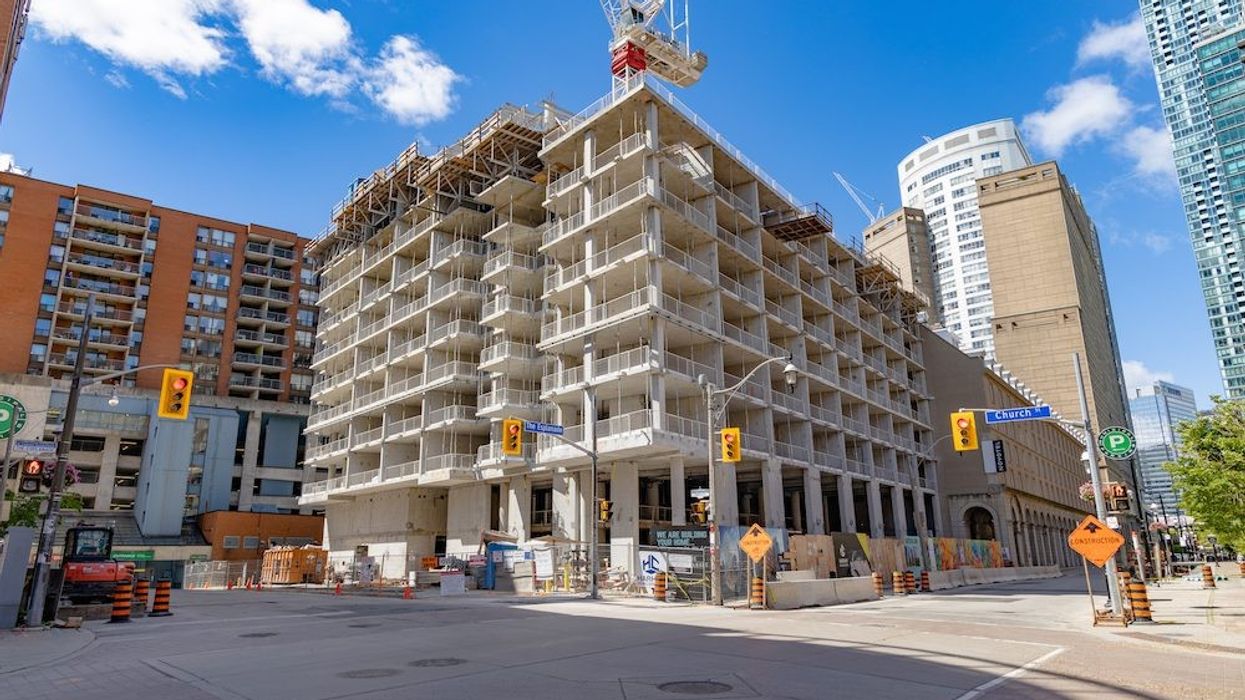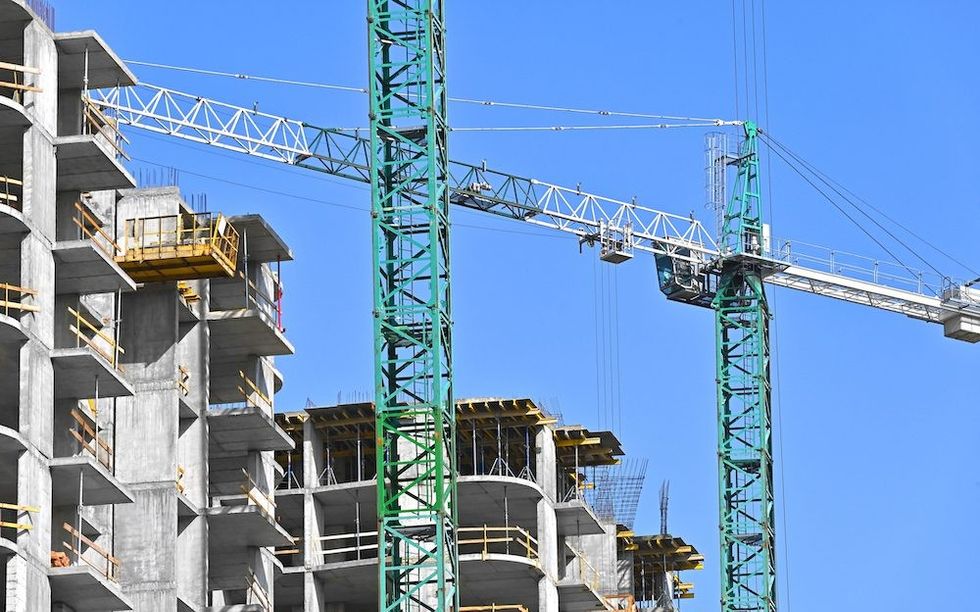Toronto Mayor John Tory has a loud-and-clear message for Toronto developers: use it or lose it.
Not surprisingly, housing was the star of the show in John Tory’s first election platform announcement in advance of October's mayoral election.
Earlier this week, Mayor Tory unveiled a five-pillar strategy aimed at boosting the construction of much-needed new homes and improving the overall housing affordability for Toronto residents.
“We’ve made strong progress over the past eight years to get housing built in Toronto, but to tackle increased affordability challenges brought on by a national housing shortage we need to build more homes, faster,” said Mayor Tory in a press release. “I’m proud to announce a five point plan that builds on this progress by looking critically at where we can streamline and modernize processes at City Hall, and how we incentivize our homebuilding partners to increase our housing supply and drive affordability.”
As part of this strategy, Tory takes aim at idle developers sitting on approved but undeveloped land. The reality is that not all projects that get approved and permitted end up getting built. To avoid this -- something that obviously only stalls the city’s ability to increase supply -- Tory wants to ask the province to enact a policy that would result in consequences.
The policy would mandate that developers start building on unused land within a specific time period or face repercussions of higher taxes and expired zoning approvals.
For the most part, Mayor Tory's five-point plan has been well-received.
Both RESCON and BILD homebuilding associations vocally support Tory’s plan in general -- especially when it comes to speeding up approval times and tackling the “missing middle” (i.e. more garden suites, laneway homes, and multi-unit residences) -- however, they have some concerns surrounding the whole “use it or lose it” policy.
While he understands the glaringly obvious need for more housing ASAP underscored by Mayor Tory, BILD president and CEO Dave Wilkes highlights that today’s sky-high and amenity-packed condo buildings don’t materialize overnight.
“It takes on average 10 years to complete a high-rise project and 11 years to complete a low-rise project in the GTA,” Wilkes tells STOREYS. “Reasons that may cause delays or prevent a planned or approved project from proceeding include economic, market conditions, appeals, absence of demand, and/or necessary infrastructure not being in place.”
RESCON president Richard Lyall wants to know the specifics of Tory's proposed initiative. “I understand the need not to have developers sit on land that's been approved for development for a long period of time," Lyall tells STOREYS. "The devil is in the details, and there aren’t much in the way of details at the current time." Given this, he does express some room for a degree of caution and concern.
While Lyall acknowledges that some Toronto projects simply don’t get built, he says it’s not necessarily more common than in the past. But there have been some “usual circumstances” in recent years, as he points out.
“For example, to get ahead of inclusionary zoning, you had a lot of people who submitted project proposals to get in under the wire so they wouldn’t be affected by the new inclusionary zoning provisions,” says Lyall. “We also had a 46% increase in development charges -- plus inclusionary zoning down the road -- which could be a real problem for the economics of a project’s worth, given our rapidly escalating construction costs and other factors in an inflationary environment.”
Undoubtedly, the current market of volatility and uncertainty makes it increasingly difficult to plan projects.
“With what’s happening with the market direction -- the drop in sales and the uncertainty relative inflation -- we are hearing that certain projects will be delayed until those behind them hear where things are going with the economy,” says Lyall. “But having said that, I don’t think that proponents of those projects should be penalized if they hold off for good reasons to see where things land. It’s scary to try to predict where things are going to be in a year or two years right now -- especially on high-rises, which have longer lead times -- in order to price the project accurately. If you don’t get it right, companies can completely fail.”
The irony, says Lyall, is that -- should a proponent of a development hold off to see where things settle once there’s a degree of predictability -- if approvals are taken away and reset, ensuing new development charges, fees, and inclusionary zoning mandates may actually render the project unviable.
Developers are already struggling; and in some cases of infamously cancelled condo units, it's the buyers who are getting the short end of the stick. According to a study conducted by Urbanation in June, rising construction costs could result in the cancellation of some 5,000 condo units.
At the end of the day, however -- though we live in an uncertain economic climate for builders (and the rest of us, frankly) -- we also live in a housing market characterized by limited supply, unattainable housing prices, and scarce rental options. Torontonians need homes. And if a "use it or lose it" policy will actually help this cause, it may not be a bad idea.
“This is about making sure that young people can live and raise their families in the neighbourhoods they grew up in, seniors can stay in their neighbourhoods if they decide to downsize, and newcomers can continue to move to and contribute to this City," said Mayor Tory of the five-point plan.
In the meantime, Wilkes says BILD is open to exploring the issue of cancelled condo projects in Toronto.
“As we have always stated since various municipalities have raised the topic, we welcome the opportunity to have transparent discussions on approved lots and why development on some sites may proceed at a different pace that others,” says Wilkes. “The provincial government under Bill 109 has tasked the Ministry of Finance to lead these discussions and we stand ready to quantify whether this is in fact a significant issue and identify solutions.”























